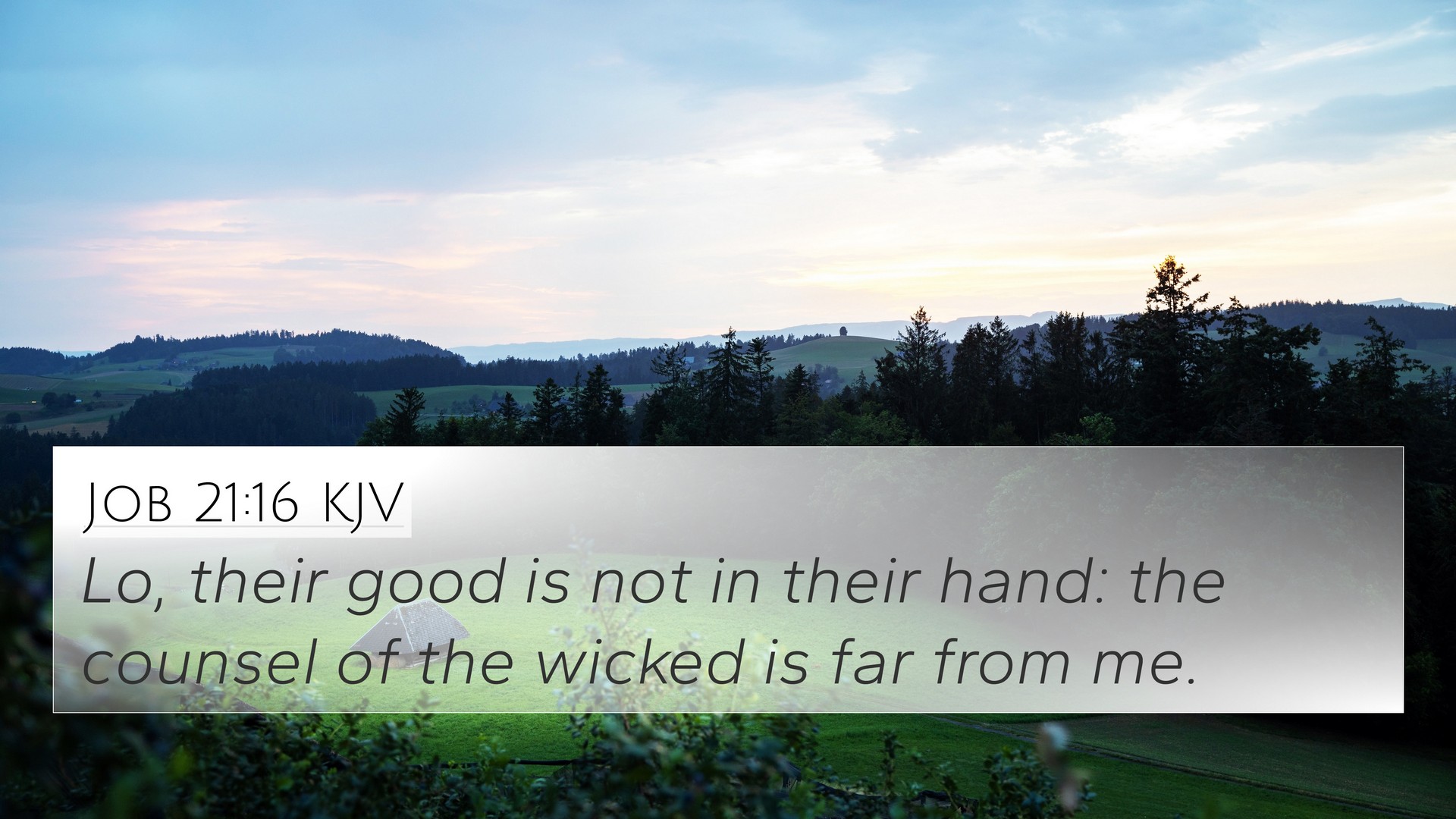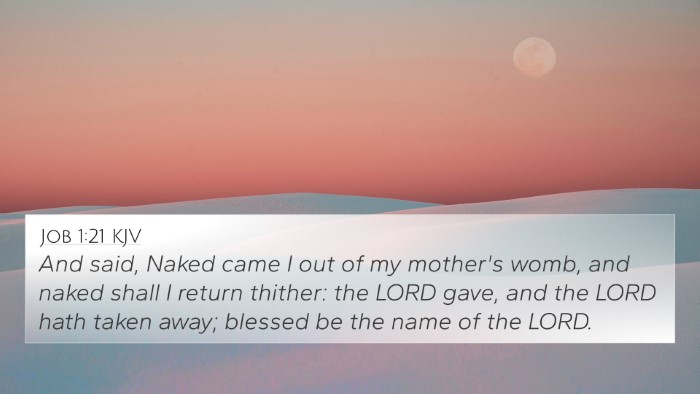Understanding Job 21:16
Job 21:16 states: "Lo, their good is not in their hand: the counsel of the wicked is far from me." This verse reflects Job's thoughts during his response to his friends' misguided arguments regarding the prosperity of the wicked.
Summary of Insights from Public Domain Commentaries
In this verse, Job articulates a profound perspective on the apparent prosperity of the wicked. Through an amalgamation of insights derived from commentaries by Matthew Henry, Albert Barnes, and Adam Clarke, we can distill the following themes:
1. The Illusion of Wicked Prosperity
Job emphasizes that the fortunes of the wicked are temporary and misleading. Matthew Henry suggests that though some may seem to thrive without regard for God, their "good" is not genuinely under their control as it lacks divine endorsement.
2. The Counsel of the Wicked
Job expresses a rejection of the "counsel of the wicked," highlighting a significant moral and spiritual stance. Albert Barnes interprets this as Job's commitment to righteousness and his awareness of the futility in aligning with those who disregard God's laws.
3. The Contrast between Righteousness and Wickedness
Adam Clarke explains that Job’s assertion reflects a greater theological truth—the ultimate consequences of following wickedness versus righteousness. Job stands counter to common thinking that equates material success with divine favor.
4. A Reflection of Job’s Condition
This verse is simultaneously a revelation of Job's personal plight and a larger commentary on justice. Job queries the very nature of divine justice and how it appears, or lacks appearance, in the lives of men. Asserting that the 'counsel of the wicked is far from me' reaffirms his purity of heart even amidst suffering.
Bible Cross-References
Job 21:16 can be connected to several other scripture passages, providing a deeper understanding through thematic Bible verse connections:
- Psalms 73:3-5 - Discusses the envy of the wicked's prosperity.
- Proverbs 24:19-20 - Advises against fretting over the wicked's situation.
- Ecclesiastes 7:15 - Reflects on the existence of righteousness amidst suffering and wickedness.
- Isaiah 57:21 - Notes that there is no peace for the wicked.
- Matthew 5:45 - God causes the sun to rise and rain to fall on both the just and unjust, highlighting the impartiality of earthly rewards.
- Romans 2:6 - God will repay each person according to their deeds, contrasting immediate worldly outcomes with eternal judgment.
- Galatians 6:7 - A reminder that a person reaps what they sow, promoting the importance of righteousness.
Thematic Bible Verse Connections
This verse invites contemplation of broader themes within the text—namely, the nature of divine justice, the impermanence of earthly wealth, and the call to uphold virtue amidst adversity. These connections lay groundwork for further comparative Bible verse analysis and invoke questions about the relationships between scripture passages.
Tools for Bible Cross-Referencing
For those investigating Job 21:16 and related scriptures, several tools for Bible cross-referencing may enhance understanding:
- Bible Concordance - A comprehensive index to find specific words and their occurrences across the scriptures.
- Bible Cross-Reference Guide - Useful for studying related verses contextually.
- Cross-reference Bible Study - Engaging in thematic studies that tie verses together.
- Comprehensive Bible Cross-reference Materials - These can provide extensive insights into the links between Old and New Testament writings.
User Intent Keywords and Cross-Referencing
Understanding the connections between Bible verses can significantly enhance scriptural study. For instance, someone may ask: What verses are related to Job 21:16? or How do Job 21:16 and Psalms 73:3 connect? This reflects the ongoing demand for resources in identifying those similarities between Bible verses that illuminate theological truths.
Conclusion
In summary, Job 21:16 serves as an essential verse for understanding the tension between perceived earthly rewards and true spiritual wisdom. By employing cross-referencing Biblical texts and delving into thematic connections, we can grasp a more profound comprehension of Job's declarations and the implications they carry for faith and righteousness.














